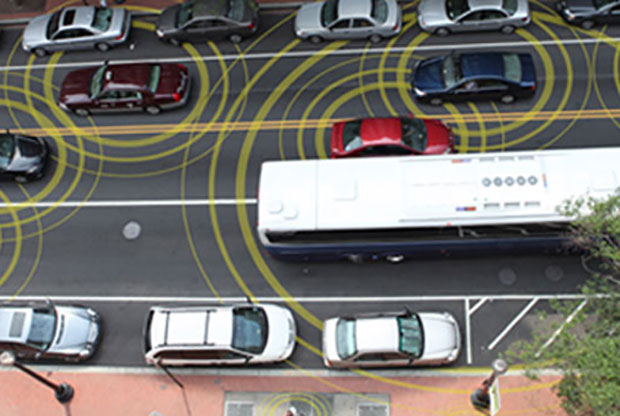USDOT Announces $42 Million Push To Advance Connected Cars Platforms And Infrastructure
The technology that automatically reduces your car’s speed when it gets too close to another vehicle is just the beginning. There is a sea of traffic data just waiting to be picked up by “connected cars” and used to make travel safer and better for the environment. To that end, U.S. Transportation Secretary Anthony Foxx announced this week that the government plans to make a $42 million investment in a pilot program for connected car tech. The program will be run in New York City, Tampa, FL and Wyoming.
“Today’s announcement is a big step forward for the future of how we move in this country, from our rural communities to our biggest cities,” said Foxx in a statement. “It has been a core mission of the Department to support promising new technologies, and through these types of smart investments we are opening the door to a safer and cleaner network and expanding how future generations travel.”
Each region will pilot connected car technology with different goals. Wyoming will focus on trucks traveling on Interstate 80, which runs East/West across much of the United States. The program will use Vehicles to Vehicle (V2V) technology, which is installed in trucks and allows them to communicate anonymously. It will also feature Vehicle to Infrastructure (V2I) tech. The U.S. Department of Transportation (USDOT) estimates that 11,000 to 16,000 vehicles travel on I-80 in Wyoming every day.
The Tampa, FL project will assess ways the technology can help the environment and will also include a test in which pedestrians receive cell phone apps that allow the phones to communicate with similarly-equipped cars. The project will attempt to reduce the number of accidents that typically occur on Tampa streets.

In New York, V2V and V2I technology will be put in as many as 10,000 city-owned vehicles, as well as various infrastructure, including stoplights.
The USDOT has already run some tests prior to this award, and based on the results, hopes that the new programs could lead to technology that reduces the “unimpaired vehicle crash rate” by 80 percent. So long as the data stays anonymous, there’s a lot to like about the plan.
“Today’s announcement is a big step forward for the future of how we move in this country, from our rural communities to our biggest cities,” said Foxx in a statement. “It has been a core mission of the Department to support promising new technologies, and through these types of smart investments we are opening the door to a safer and cleaner network and expanding how future generations travel.”
Each region will pilot connected car technology with different goals. Wyoming will focus on trucks traveling on Interstate 80, which runs East/West across much of the United States. The program will use Vehicles to Vehicle (V2V) technology, which is installed in trucks and allows them to communicate anonymously. It will also feature Vehicle to Infrastructure (V2I) tech. The U.S. Department of Transportation (USDOT) estimates that 11,000 to 16,000 vehicles travel on I-80 in Wyoming every day.
The Tampa, FL project will assess ways the technology can help the environment and will also include a test in which pedestrians receive cell phone apps that allow the phones to communicate with similarly-equipped cars. The project will attempt to reduce the number of accidents that typically occur on Tampa streets.

The USDOT has already run some tests prior to this award, and based on the results, hopes that the new programs could lead to technology that reduces the “unimpaired vehicle crash rate” by 80 percent. So long as the data stays anonymous, there’s a lot to like about the plan.


